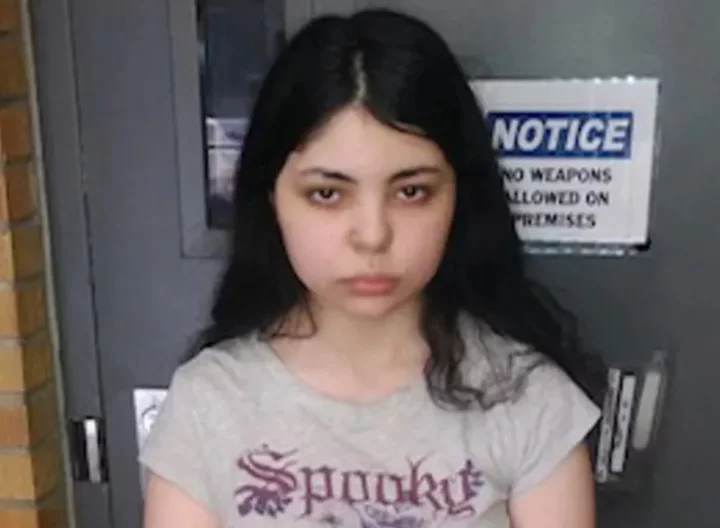
Alicia Navarro tells investigators ‘nobody hurt me’ in mysterious reappearance as police deny arrest rumours
A missing Arizona teenager who mysteriously turned up at a Montana police station four years after her disappearance has told police that she was not harmed, according to a video released by police. Alicia Navarro, 18, stunned officers in the small town of Havre, 40 miles from the Canadian border, when she showed up alone on Sunday and identified herself as a missing teenager from the Phoenix suburb of Glendale. Nearly a week on from her reappearance, very little is known about where the teenager has been, or if any suspects have been identified. In a newly released video interview, a Glendale detective asks Ms Navarro: “Did anybody hurt you in any way?” “No, no one hurt me,” she replied. The detective then asks: “OK, because our goal is we just want to make sure that you’re safe.” “I don’t, I don’t, ummm... I understand that,” she responds. In a separate video, Ms Navarro thanks police. “Thank you for offering help to me,” she says. Ms Navarro disappeared from her Glendale home in September 2019 at the age of 14, sparking a vast search operation involving police, the FBI and the Center for Missing and Exploited Children. Her mother Jessica Nuñez has previously said the teenager was on the autism spectrum, which made her shy in some social situations, and that she had left a note in her bedroom saying she had run away. “I will be back. I swear. I’m sorry,” she wrote in a note days before her 15th birthday, before taking her laptop and phone and hopping over a backyard fence. A private investigator hired by the family told the New York Post Ms Navarro had only spoken briefly to her mother. Trent Steel told the Post the family was thrilled she had been found safe, but that the teenager had “not made her intentions clear”. Glendale police Lt Scott Waite said this week that investigators were looking into all possible explanations for her disappearance, including kidnapping. Mr Waite described the teenager’s reunion with her mother as “emotionally overwhelming”. Ms Navarro reportedly apologised for “what she has put her mother through.” Ms Nuñez previously told 12News that she believed her daughter had been lured away by a predator. In a video posted to her Facebook account on Wednesday, Ms Nuñez told her thousands of followers: “I want to give glory to God for answering prayers and for this miracle.” In a statement released on Friday through the Anti-Predator Project, her family thanked law enforcement, activists and the media. “It is a blessing that after being missing for so long Alicia can come back home,” the statement reads. “If there is anything that Alicia’s story has taught us is that you can never give up hope.” According to the Associated Press, a man living in an apartment a few blocks from the Havre police station was arrested on Wednesday night. Witnesses told the AP that 10 heavily armed uniformed and undercover officers arrived at the address at about 8pm and took a suspect away in handcuffs. On Friday, Glendale police denied that there have been any arrests in connection with Ms Navarro’s disappearance. Read More Mystery as teenager walks into Montana police precinct four years after she went missing in Arizona Mother says daughter’s return after four years brings hope to all parents of missing children
2023-07-29 02:46
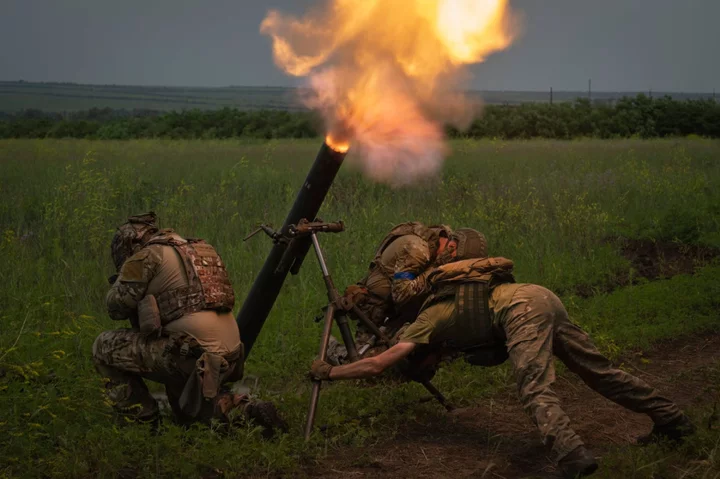
Russia-Ukraine war – live: Putin ‘threatening civilian ships in Black Sea’ as Kyiv makes battlefield advances
Vladimir Putin has been accused by a Ukranian official of threatening civilian boats in the Black Sea in the aftermath of Russia’s withdrawal from the UN-brokered deal that allowed safe passage of grain. The official accused the Russian president on Friday of deploying “the methods of terrorists” and said ships heading to Ukrainian seaports could be considered military targets. “Russian warships are threatening civilians in the Black Sea, violating all norms of international maritime law,” Andriy Yermak, head of Volodymyr Zelensky’s office, wrote on the Telegram messaging app. In a separate statement, Ukraine‘s border guard service said it had intercepted a warning communicated by Russia to a civilian vessel passing near a Ukrainian port on Thursday. It did not identify the name of the ship or the port, but said: “The aggressor’s warships continue to behave brazenly and audaciously in the waters of the Black Sea, violating all the norms of international maritime law”. Russia did not immediately respond to Yermak’s comments or to the border guard service’s statement. Mr Putin is meeting with African heads of state on Friday. Read More Even Putin admits Ukraine has stepped up attacks on Russia’s forces – but progress will be slow Putin promises grain aid to Africa despite withdrawing from Ukraine deal Ukrainian fencer disqualified from world championships for refusing handshake with Russian opponent Russian defence minister meets Kim Jong-un during visit to arms exhibition in North Korea
2023-07-29 02:23
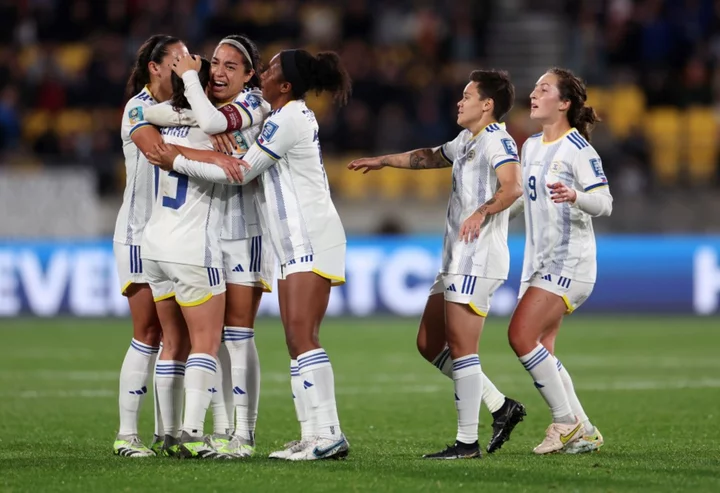
The other American women's team at World Cup
A shock win by Philippines over New Zealand was forged thousands of miles away in the US.
2023-07-29 02:20
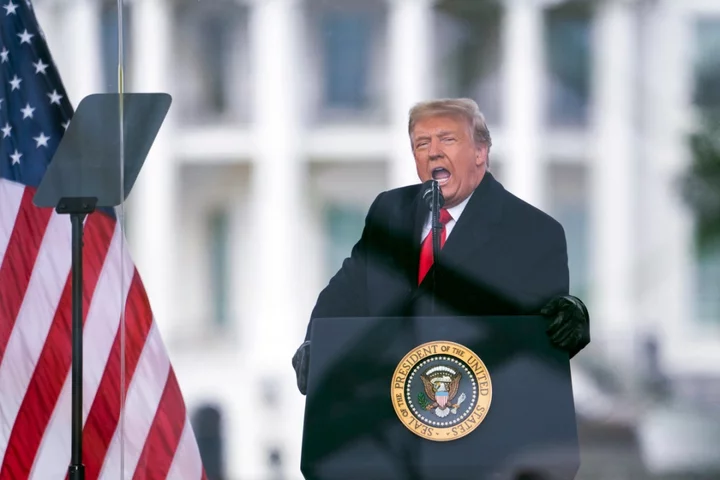
Trump has one-in-three chance of facing judge he appointed in special counsel indictment
Donald Trump is widely expected to be indicted imminently by Justice Department special counsel Jack Smith over his efforts to overturn the 2020 US presidential election result and his role in inciting the Capitol riot of 6 January 2021. Should that happen and he is brought to trial in Washington DC, Mr Trump would appear before a judge selected at random to oversee the case in accordance with the local rules. However, since he was the 45th president of the United States, Mr Trump stands a one-in-three chance of coming up against a jurist he personally appointed. Four of the 12 district judges currently active in DC – Judges Timothy Kelly, Trevor McFadden, Dabney Friedrich and Carl Nichols – were elevated to their current positions during the Republican’s four years in the White House between 2017 and 2021, meaning, at least at that point, he believed them to be politically sympathetic to his own values. Both Judge McFadden and Judge Nichols have raised eyebrows since then through their handling of January 6 defendants, the former delivering the only acquittal in a bench trial resulting from the failed insurrection and attempting to waive grand jury secrecy in court and the latter finding himself in disagreement with no fewer than 10 of his peers when he ruled that the Justice Department could not charge the accused rioters with obstruction of an official. The remaining eight active justices were appointed by either Barack Obama or Joe Biden, which, following the same logic, suggests they are likely to have more Democratic leanings. The ranks of DC’s senior judges, meanwhile, include veterans appointed during the Ronald Reagan, Bill Clinton and George W Bush administrations, two of whom – Emmet Sullivan and Amy Berman Jackson – have a recent track record of making enemies of Trumpworld luminaries. Judge Sullivan told Mr Trump’s short-lived first national security adviser Michael Flynn in 2018 that might have been charged with “treason” over his undeclared lobbying on behalf of the Turkish government, drawing the ire of the MAGA movement, while Judge Jackson attracted headlines when she issued a gag order against self-styled Republican political fixer Roger Stone after he posted a picture of her on Instagram with a rifle’s crosshairs zeroing in on her forehead. As for DC’s juror pool, citizens of the nation’s capital have distinguished themselves in recent years through their careful and considered handling of January 6 cases, despite voting overwhelmingly for Mr Biden at the ballot box and witnessing the violence of that ignominious day first-hand on their own doorsteps. For all that, Brandon Van Grack, a former federal prosecutor who worked on special counsel Robert Mueller’s investigation into Mr Trump’s alleged ties to Russian election meddling in 2016, argues that too much emphasis is placed on a justice’s supposed political affiliations, especially among the conspiracy-minded. “There are so many exceptions to it,” he told The Messenger. “I think it’s just too much shorthand for people who don’t know the court and who don’t know the judges.” Read More Trump news – live: Trump and aides charged with plotting to delete security footage in classified docs case Trump slams Jack Smith’s superseding indictment in classified docs case as ‘election interference’ Trump’s election fraud claims were always bogus. Will his history of lies finally catch up to him? What is an indictment? Donald Trump facing third of 2023 over Capitol riot Trump says he’ll run for president from jail if convicted on any indictments Trump calls additional charges in Jack Smith’s superseding indictment ‘harassment’
2023-07-29 01:26
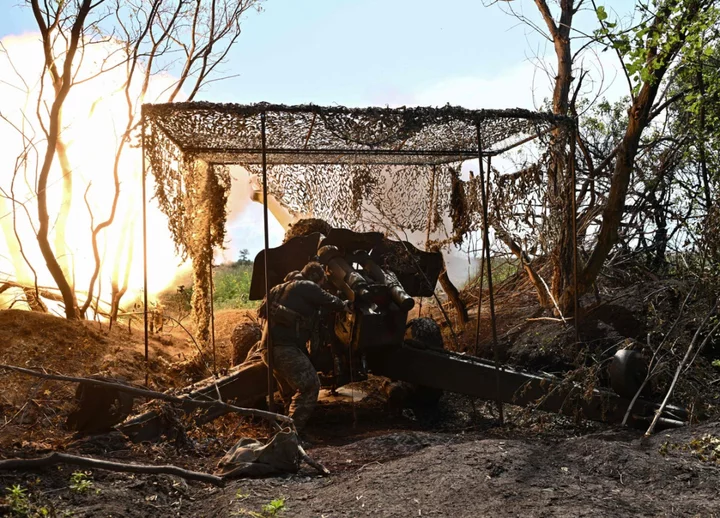
Ukraine’s troops advance around Bakhmut despite intense artillery fire from Russia’s forces, military say
Kyiv's troops are pushing through heavy intense artillery fire from Russian forces to advance in the east of Ukraine, the commander of the country's armed forces has said. Colonel General Oleksandr Syrskyi said that despite meeting stuff resistance, Ukraine's ground forces are making "gradual advances in the direction of Bakhmut in the eastern Donetsk region. The city, which is now occupied by Russian forces, has gained symbolic significance for both Kyiv and Moscow having been the scene for some of the most intense fighting of the war. "The enemy fiercely clings to every centimetre, conducting intense artillery and mortar fire," Col Gen Syrskyi said in a statement. It comes after Ukrainian President Volodymyr Zelensky posted a video late on Thursday night in which Ukrainian soldiers said they had taken the village of Staromaiorske, which sits in the western park of Donetsk region the opposite side to Bakhmut. Russian military bloggers said artillery fire at the Ukrainian troops had effectively razed the village and reported more barrages Friday. Capturing the village, which is south of a cluster of settlements that Ukraine capture at the beginning of its counteroffensive last month, would give Ukraine a platform to push deeper into Russian-held territory. Fighting has intensified at multiple places along the more than 600-mile frontline, where Ukraine deployed its recently acquired Western weapons to push back Russia's troops. That includes the southern Zaporizhzhia region. However, Kyiv's troops are attacking without the air support it says is vital – and face an enemy that has had months to fortify their positions as Ukraine prepared its counter punch. Russia is trying to hold on to the territory it controls in the four provinces it illegally annexed in September: Zaporizhzhia, Donetsk, Kherson and Luhansk. Col Gen Syrskyi said fighting that targets the enemy's artillery as well as its command and control structure is a priority as his troops probe Russian lines for weaknesses. "In these conditions, it is crucial to make timely management decisions in response to the situation at hand and take measures for maneuvering forces and resources, shifting units and troops to areas where success is evident, or withdrawing them from the enemy's fire," he said. Elsewhere, Mr Zelensky marked Ukraine's Statehood Day – which coincides with commemorations of the adoption of Christianity on lands that later became Ukraine, Russia and Belarus – by reaffirming the country's sovereignty. His words were a rebuke to Russian President Vladimir Putin, who used his claim that Ukraine didn't exist as a nation to justify his invasion. "Now, like more than a thousand years ago, our civilizational choice is unity with the world," Mr Zelensky said in a speech on a square outside St. Michael's Monastery in Kyiv. "To be a power in world history. To have the right to its national history, of its people, its land, its state. And of our children, all future generations of the Ukrainian people. We will definitely win!" Moscow also accused Kyiv of firing two missiles at southern Russia, with the Defence Ministry said it shot down a missile in the city of Taganrog, about 20 miles east of the border with Ukraine, and local officials reported 20 people were injured. The Russian Defence Ministry later said it downed a second missile near the city of Azov. Ukraine's secretary of the National Security and Defense Council, Oleksiy Danilov, blamed Russian air defense systems for the explosion in Taganog. Separately, an explosion was reported to have hit an oil refinery in the southwestern Russian city of Samara. In St Petersburg, African leaders pressed Russian President Vladimir Putin to move ahead with their peace plan aimed at ending Russia's invasion and to renew a deal on the export of Ukrainian grain that Moscow tore up last week. While not directly critical of Russia, the words on the second day of a summit with Mr Putin were more forceful than those previously voiced. "This war must end. And it can only end on the basis of justice and reason," African Union Commission Chairman Moussa Faki Mahamat said. At the summit, Egyptian President Abdel Fatah al-Sisi urged Russia to revive the Black Sea grain deal. Since withdrawing from the deal, Russia has bombed Ukrainian ports and grain depots. Mr Sisi, whose country is a big buyer of grain via the Black Sea route, told the summit it was "essential to reach agreement" on reviving the deal. A senior Ukrainian official accused Russia on Friday of threatening civilian vessels in the Black Sea, urging the international community to condemn Moscow's actions. Associated Press and Reuters contributed to this report Read More The Body in the Woods | An Independent TV Original Documentary The harrowing discovery at centre of The Independent’s new documentary Baby died after ‘extremely vulnerable’ mother gave birth alone in prison G20 ministers reach agreement on most, but not all, climate issues Why is Wagner chief Yevgeny Prigozhin back in Russia?
2023-07-29 00:47
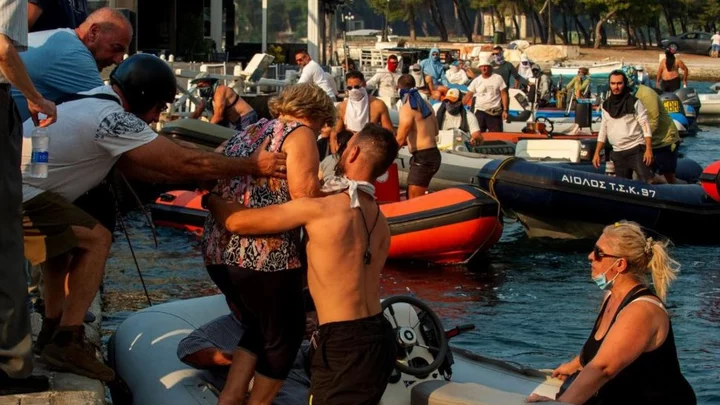
Greek fires at Nea Anchialos prompt blasts forcing F-16s to evacuate base
Residents escape by boat and the air force evacuates fighter planes as an ammunition depot explodes.
2023-07-28 18:52
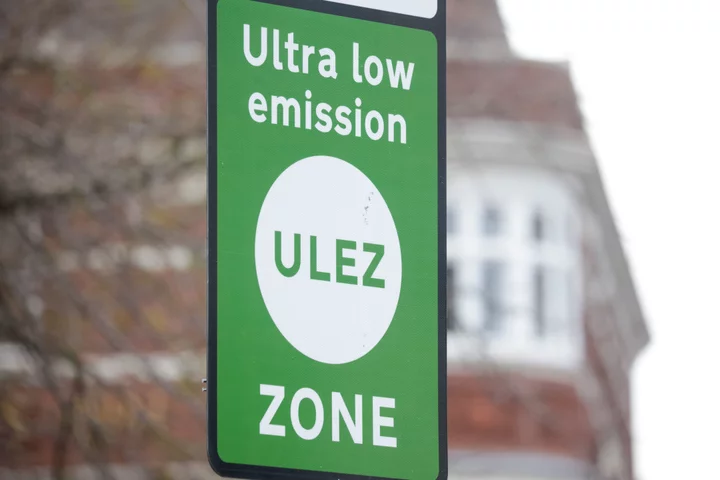
London’s Contentious ULEZ Policy Ruled Lawful by London Judge
The Mayor of London’s plans to expand a contentious charge on drivers of older, more polluting cars to
2023-07-28 17:48
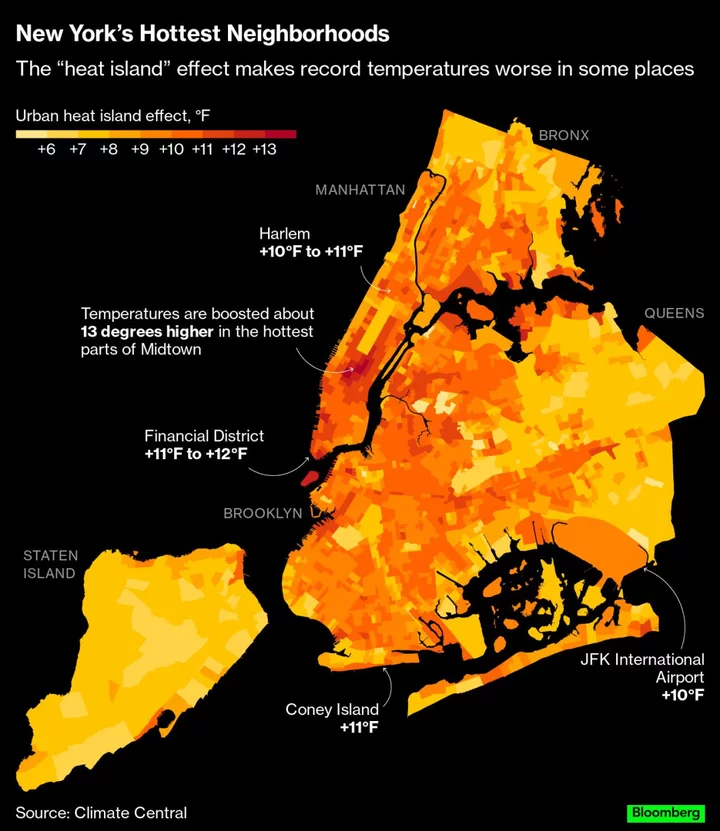
Midtown Manhattan Is Literally New York’s Hottest Neighborhood
The US heat wave has come to New York City, delivering temperatures in the mid- to upper-90s and
2023-07-28 17:27
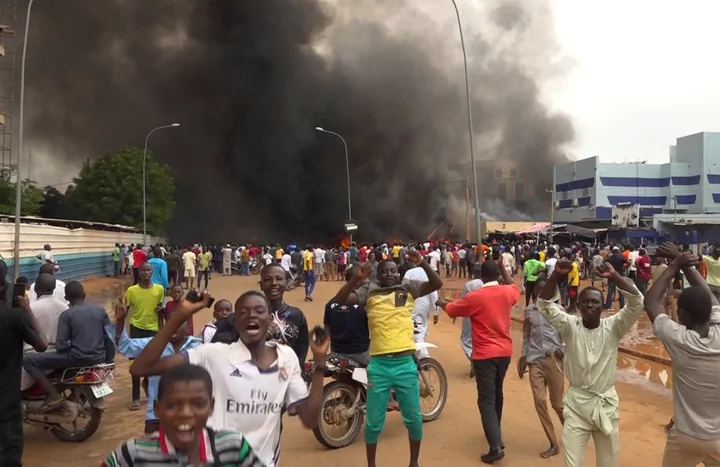
No clarity about who's in charge in Niger, 2 days after mutinous soldiers ousted the president
Two days after mutinous soldiers ousted Niger’s democratically elected president, it was still unclear Friday morning who was running the country and what mediation efforts were underway, as analysts warned that political chaos could set back the fight on extremist groups and increase Russia's influence in the region. On Thursday, several hundred people gathered in the capital, Niamey, and chanted support for the Russian private military group Wagner while waving Russian flags. Later, they burned cars and ransacked the headquarters of the president's political party. “We’re fed up,” said Omar Issaka, one of the protestors. “We are tired of being targeted by the men in the bush ... Down with the French people. We’re going to collaborate with Russia now,” he said. The soldiers have not announced a leader and President Mohamed Bazoum, who was elected two years ago in Niger’s first peaceful, democratic transfer of power since its independence from France in 1960, has not resigned. Some of the last public communications from the government included a defiant tweet by the president Thursday declaring that democracy would prevail and a call by the Foreign Minister Hassoumi Massoudou, on media outlet France 24, for Nigeriens to stand against the mutiny. Someone close to the president who is not authorized to speak about the situation, told The Associated Press that Bazoum has no intention of resigning and talks were ongoing. However, it's unclear who's involved in these dialogues, the nature of the discussions or how they're proceeding. Analysts say the coup could destabilize the country and threatens to starkly reshape the international community’s engagement with the Sahel region. Bazoum is a key ally in the West’s efforts to battle the jihadists, and the West African nation has been seen as the last major Western partner standing against extremism in a region where anti-French sentiment has paved the way for the Russian private military group Wagner. Neighboring Mali and Burkina Faso have both ousted the French military, which previously provided aid in their fight against jihadists. Mali has contracted Wagner, and it’s believed the mercenaries will soon be in Burkina Faso. Earlier this week, The Economic Community of West African States said it was sending Benin President Patrice Talon to lead mediation efforts, but as of Friday Talon was not in the country. During their first address to the nation Wednesday night, the mutineers urged “external partners” not to interfere. French Foreign Minister Catherine Colonna told French media Friday that President Emmanuel Macron has spoken several times to Bazoum. Colonna said France believes there are still possible exits from the crisis, and that Paris regards the attempted coup as lacking any legitimacy. On Thursday, U.S. Vice President Kamala Harris, said the country's “substantial cooperation with the Government of Niger is contingent on Niger’s continued commitment to democratic standards". Niger could lose millions of dollars in military aid and assistance, which the United States and European countries have recently poured in an attempt to help in the fight against Islamic extremism. The United States in early 2021 said it had provided Niger with more than $500 million in military assistance and training programs since 2012, one of the largest such support programs in sub-Saharan Africa. The European Union earlier this year launched a 27 million-euro ($30 million) military training mission in Niger. The United States has more than 1,000 service personnel in the country. France has 1,500 soldiers, which conduct joint operations with the Nigeriens. The coup has dashed hopes of collaboration between Sahelian countries and Western powers, which offered a more robust response to the jihadist insurrection when compared with the strategies to arm civilians in Burkina Faso or the responsibility given to Wagner in Mali, said Ibrahim Yahaya Ibrahim, senior Sahel analyst for the International Crisis Group. As uncertainty lingers about who's in charge, insecurity could worsen. “The army officers will be busy positioning themselves in power struggles and abandon the fight against jihadists,” said Ulf Laessing, head of the Sahel program at the Konrad Adenauer Foundation. Rights groups also warn that civilians always bear the brunt of these mutinies. “During a coup, the first victims are always the same: the most vulnerable, women and children,” said Drissa Traore, secretary-general of the International Federation for Human Rights. On Thursday the United Nations Office for the Coordination of Humanitarian Affairs said it has paused operations in Niger, where more than 370,000 people are internally displaced and more than 4 million rely on aid. ___ AP writer John Leicester in Paris contributed to this report. Read More Ukraine war’s heaviest fight rages in east - follow live Charity boss speaks out over ‘traumatic’ encounter with royal aide Stock market today: Asian shares mixed, Tokyo falls as Bank of Japan adjusts bond purchase policy India and Japan look to collaborate in building semiconductors and resilient supply chains AP Week in Pictures: Europe and Africa
2023-07-28 15:51
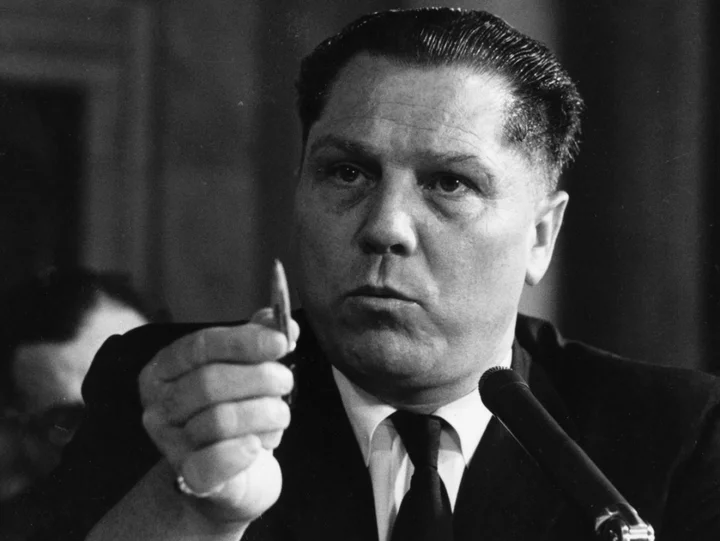
Jimmy Hoffa disappearance anniversary: What happened to long-lost union leader presumed murdered by the mob?
Jimmy Hoffa, the legendary American union organiser, disappeared from a parking lot outside of the Machus Red Fox restaurant in Bloomfield Township, Detroit, 48 years ago on Saturday 30 July 1975. Presumed dead since the same date in 1982, his body has never been found, no one has ever been charged and the case remains unsolved. Hoffa, 62, was last heard from at around 2.15pm that afternoon, calling his wife at their home in Lake Orion and a friend, Louis Linteau, at his office from a public payphone, griping that the two gentlemen he was supposed to be meeting for lunch had failed to show up. He was subsequently spotted talking to several other men nearby before being driven away in a maroon car that one eyewitness, a truck driver, told investigators could have been a Lincoln or maybe a Mercury Marquis. It might as well have been a hearse, for all the difference it made, for James Riddle Hoffa would never be seen again. His own vehicle, a green Pontiac Grand Ville, stood abandoned at the scene, just where he had left it. Long assumed to have been the victim of a mob hit, the visionary general president of the International Brotherhood of Teamsters (IBT) – who dramatically expanded the union’s reach, influence and coffers between 1957 and 1971, before being brought down by scandal – certainly had more than his fair share of powerful enemies and shady associates. Hoffa’s story – or, at least, versions of it – has frequently been told over the past half-century, often fictionalised through characters loosely based upon him in movies like Sergio Leone’s Once Upon a Time in America (1984) or more directly in Danny DeVito’s biopic Hoffa (1992) starring Jack Nicholson, James Ellroy’s Underworld USA novel sequence or Martin Scorcese’s recent The Irishman (2019) in which Al Pacino played the doomed labour leader. But none of those projects have come close to cracking one of the most enduring true crime mysteries in the history of American public life. What really happened to Jimmy Hoffa? Now that is a riddle. Born on Valentine’s Day 1913 in Brazil, Indiana, Hoffa’s Pennsylvania Dutch father John was a coal miner who passed away from lung disease in 1920 when his son was just seven years old, prompting the family to relocate to Detroit, Michigan, soon to become the epicentre of the mighty American auto industry. Realising he would need to grow up fast to support his mother, Hoffa left school at 14 to work as a stock boy for a grocery chain, where he soon took exception to the inadequate wages he received, the perilous terms of his employment and the inequality he saw all around him, which would only worsen in the aftermath of the Wall Street Crash of 1929 with the coming of the Great Depression. Having learned to stand up for himself against workplace injustice, Hoffa quit in 1932 to work as a professional organiser with the Local 299 chapter of the Teamsters union, representing Detroit’s truck drivers and warehouse operatives. As the organisation grew over the course of a combative decade, consolidating its power first locally, then regionally and finally nationally, Hoffa met the Polish girl who would become his wife, Josephine Poszywak, during a strike undertaken by non-unionised laundry workers in early 1937. They married that September. Hoffa’s growing reputation and networking smarts saw him named chairman of the Central States Drivers Council in 1940, president of the Michigan Conference of Teamsters in 1942 and then president of Local 299 by 1946, all without moving so much as a single truck himself. As a labour stalwart, Hoffa secured a draft deferment when the United States entered the Second World War by successfully arguing he would be of far greater service to his country organising industry at home than he might be deployed as a grunt abroad. That also meant he was well positioned to reap the spoils of the American economic boom of the Truman years. By 1952, he was appointed international vice president of the IBT, serving as deputy to Dave Beck, who was himself succeeding Daniel Tobin, who had led the union since way back in 1907. The IBT relocated its headquarters from Indianapolis to Washington, DC, three years later in order to be better placed to lobby Congress for its interests. It had never been more powerful. Then, in 1957, Beck was indicted, convicted and jailed on fraud charges after being hauled before John McClellan’s Senate Select Committee on Improper Activities in the Labour or Management Field. Hoffa was voted in as his successor as general president at the IBT’s convention in Miami Beach, Florida, that October. However, Hoffa’s profile within the labour movement had inevitably increased his exposure to organised crime and he had been arrested earlier that year for allegedly attempting to bribe a McClellan Committee aide, prompting the AFL-CIO to expel the Teamsters from its ranks in passionate opposition to his appointment. The air of notoriety surrounding Hoffa caught the attention of mob-busting US attorney general Robert F Kennedy during his brother’s presidency in the early 1960s and would see much of the organiser’s energies eaten up by legal scraps for much of that decade. He was indicted for jury tampering in Tennessee in May 1963 after again being accused of attempted bribery and was convicted the following March, sentenced to eight years in prison and a $10,000 fine. Four months later, while out on bail for the first offence, he was convicted at a second trial in Chicago, Illinois, on one count of conspiracy and three of mail and wire fraud for improper use of the Teamsters’ pension fund. This time he was sentenced to five years behind bars. After spending three years unsuccessfully appealing those convictions – while simultaneously expanding the union and bringing almost all on-road North American truck drivers together under one National Master Freight Agreement – Hoffa was sent to Lewisburg Federal Penitentiary in Pennsylvania on 7 March 1967 to serve a 13-year aggregate sentence. Despite the disgrace, he refused to resign and went on operating as IBT boss from Lewisburg, remaining in the role until 19 June 1971, when he was replaced by Frank Fitzsimmons, with whom he had a long association dating back to their Detroit days. Hoffa was released from prison on 23 December that year, having served fewer than five of his 13 years after Richard Nixon commuted his sentence on the condition that he refrain from engaging in union activity until 6 March 1980, a stipulation he was bitterly opposed to and battled in court in the hope of being able to wrestle back the Teamster’s presidency, unmoved to consider retirement by the generous pension settlement the organisation had handed him. The Mafia were among those opposed to his comeback ambitions, and one of their enforcers was Anthony “Tony Pro” Provenzano, a capo in New York City’s Genovese crime family with whom Hoffa had once been close but seemingly fallen out with while both men were incarcerated at Lewisburg. Provenzano is one of the men Hoffa is supposed to have been dining with at the Machus Red Fox on the day he vanished. The other was Anthony “Tony Jack” Giacalone, a local heavy who may have been dispatched as a mediator to oversee Hoffa’s appeal for support to Provenzano. Neither would admit to having seen the labour veteran in Bloomfield Township that day and both seemingly had credible alibis. What is known is that the car in which Hoffa is most likely to have been spirited away – a 1975 Mercury Marquis Brougham, after all – belonged to Giacalone’s son Joseph, who had lent it to one Charles “Chuckie” O’Brien, a Hoffa family friend. O’Brien may have been engaged to collect the old man in order to encourage a false sense of security. His fingerprints would later be found on a 7-Up bottle in Hoffa’s Pontiac, although he continued to deny any involvement until his death in 2020. When investigators examined the Mercury on 21 August, police dogs positively identified Hoffa’s scent in its upholstery, strongly suggesting he had ridden in it at least once. Later, in 2001, the advance of DNA technology enabled officers to locate a strand of his hair in the same car, although, again, that was not sufficient to trace it to a specific date. After years of federal investigation had resulted in 16,000 pages of documents spread over 70 volumes but no outcome, leaving Hoffa’s wife Josephine to pass away in 1980 without answers, the FBI’s opinion on what had happened would be outlined by Arthur Sloane in his book Hoffa (1991). In it, Sloane suggested the official verdict was that Northeastern Pennsylvania mob boss Russell Bufalino had ordered the hit and dispatched Thomas Andretta and the brothers Salvatore “Sally Bugs” and Gabriel Briguglio, alongside O’Brien, to carry it out. The quartet then either killed Hoffa inside the vehicle or drove him on to an unspecified location and executed him there, perhaps cremating his body to prevent its rediscovery. That broad outline was effectively confirmed on 16 June 2006 when The Detroit Free Press published the entire 56-page “Hoffex Memo”, an FBI dossier dating from January 1976 in which the bureau expressed its suspicions in writing, arguing the gangsters were concerned that a reinstated Hoffa might interfere with their control of the Teamster’s pension fund or even be persuaded to testify against them. There are numerous quibbles with that theory, however. Experts often argue that Hoffa was too high-profile a target for the mob to assassinate in such a public manner and that his hopes of returning to the leadership of the union amounted to little more than a pipedream by 1975, his name too tarnished to represent a serious threat. According to Sloane, former US prosecuting attorney Keith Corbett also believed that O’Brien was too unreliable to have played a part and that Vito “Billy” Giacalone, the younger brother of Tony Jack, was more likely to have been the fourth man. A completely fresh theory appeared in 2004 with the publication of Charles Brandt’s book I Heard You Paint Houses, the basis for Scorsese’s The Irishman, in which the author argues that hitman Frank Sheeran did the deed in an empty house in Detroit after Hoffa had been delivered into his clutches, the subject having confessed as much in old age. Bloodstains found on floorboards at the scene did not match Hoffa’s DNA, however, and it is often thought unlikely, as was the case with O’Brien, that an outsider might be trusted with such a delicate assignment by the notoriously tribal Italian-American syndicate. Another infamous mob killer, Richard “The Iceman” Kuklinski, claimed in his own 2006 memoir that he was responsible, having been paid the princely sum of $40,000 to whack Hoffa. Kuklinski claimed he drove the body to a New Jersey junkyard, sealed it inside a 50-gallon oil drum and set it on fire, later digging up the charred cadaver and placing it in the trunk of a car that was duly sold for scrap metal. That has likewise never been substantiated. As to the final resting place of Hoffa’s remains, multiple sites have been inspected over the decades without yielding a result, from the now-demolished Giants Stadium in East Rutherford (a tip-off hitman Donald “Tony the Greek” Frankos offered in a 1989 Playboy interview) to a landfill beneath the Pulaski Skyway in Jersey City and even the Renaissance Building in downtown Detroit, now the 73-storey home of General Motors. A farmer’s field, a swimming pool and a suburban driveway in Michigan have all been proposed and discarded while the wildest speculations imagine the missing man tossed from a plane by corrupt federal marshals into the Great Lakes (a theory courtesy of Hoffa bodyguard Joseph Franco, who had a book to sell) or ground up and disposed of in one of the quieter swamps of the Florida Everglades, an idea pitched to the Senate by self-described murderer Charles Allen in 1982. Sadly, we may never know the truth about how Jimmy Hoffa, at one time one of the most famous faces in America, came to vanish into thin air, blown away on the breeze like an old parking ticket, never to be seen again. Read More FBI say no sign of Jimmy Hoffa’s body under New Jersey bridge Events in the disappearance of former Teamsters head Jimmy Hoffa From serious to scurrilous, some of the many Jimmy Hoffa theories
2023-07-28 15:18
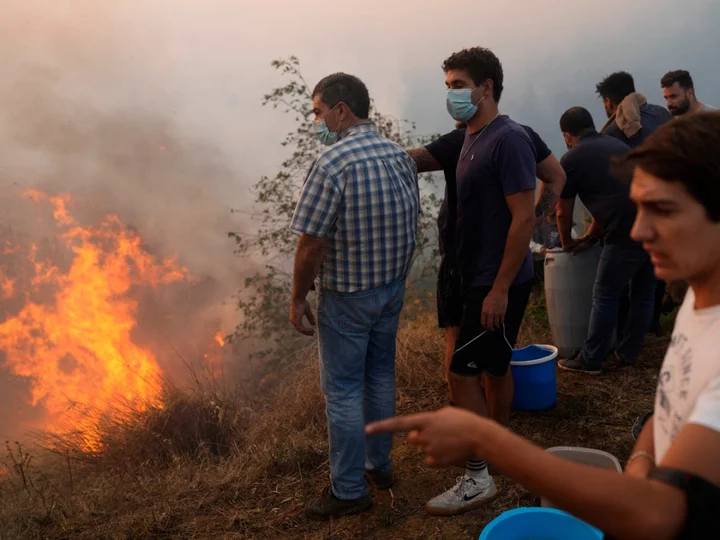
Greece fires – live: Blaze triggers massive explosions at air force ammunition depot
A wildfire has triggered a series of massive explosions at an air force ammunition depot in central Greece. The depot was evacuated before the explosions, which shattered windows in the surrounding area. No injuries were reported, although continued blasts prevented firefighting teams from approaching the site. Greek state broadcaster ERT said the facility is in the coastal town of Nea Aghialos near the Volos area. The fire reached the ammunition storage facility about four miles north of the major military air base in Nea Anchialos. Local media reported that bombs and ammunition for Greek F-16 fighters were stored at the site The fighter jets are reportedly being moved from the air base. Fire Service spokesman Ioannis Artopios said 12 villages were ordered to be evacuated in the Volos-Nea Anchialos area. He said the blaze was the most dangerous of the 124 wildfires the fire service had to deal with on Thursday. Deadly wildfires on Greece’s mainland have killed two as wildfires spread in Europe and north Africa including Greece, Portugal, Turkey, Italy, France, Croatia, Spain, Algeria and Tunisia. Read More World is entering ‘era of global boiling’, UN warns as July is the hottest month on record Wildfires in Portugal: Is it safe to travel to Lisbon and Cascais right now? Rhodes holidaymaker: Tui rep urged my family to ignore evacuation order Travel insurance company apologises for telling customers they would not be covered for Greece holidays July has been so blistering hot, scientists already calculate that it's the warmest month on record
2023-07-28 12:49
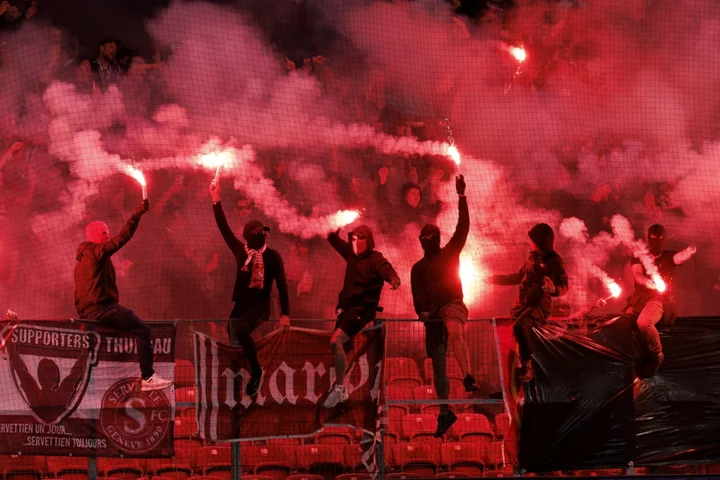
AP-Week in Pictures: July 21-27, 2023
JULY 21-27, 2023 From Servette’s supporters waving smoke flares during the UEFA Champions League match between Switzerland’s Servette FC and Belgium’s KRC Genk, to Israeli Prime Minister Benjamin Netanyahu meeting with lawmakers in parliament while demonstrators protested his divisive judicial overhaul, to actor Kevin Spacey leaving court after a jury acquitted him of all nine sexual offense charges in London, this photo gallery highlights some of the most compelling images from around the world made or published by The Associated Press in the past week. The selection was curated by AP photo editor Pamela Hassell in New York. Follow AP visual journalism: Instagram :https://www.instagram.com/apnews/ AP Images on Twitter: :https://twitter.com/AP_Images Read More Ukraine war’s heaviest fight rages in east - follow live Charity boss speaks out over ‘traumatic’ encounter with royal aide
2023-07-28 10:23
You Might Like...

Anger as Fox News guest it's time for someone to 'pull a trigger' over drag queens
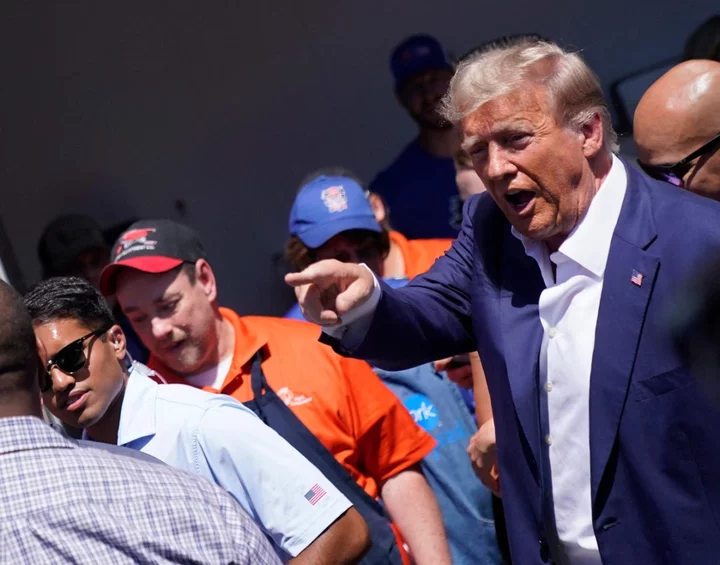
‘You know the answer’: Trump mocked for sarcastic response to 2020 election interference question
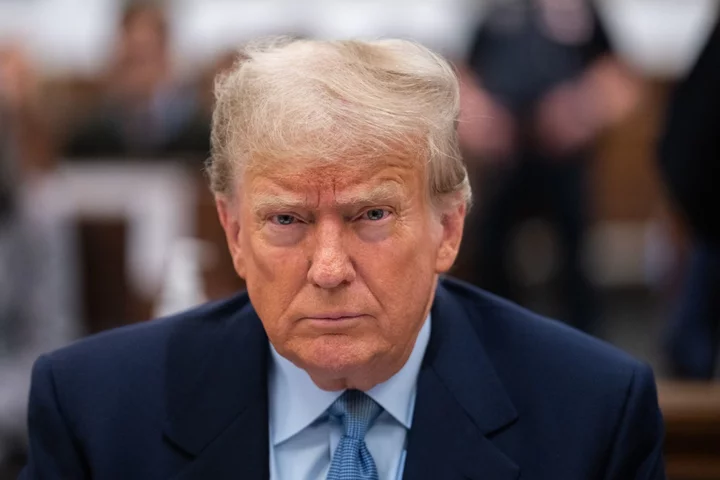
Push to Keep Trump Off the Ballot Dismissed by Minnesota Court — for Now
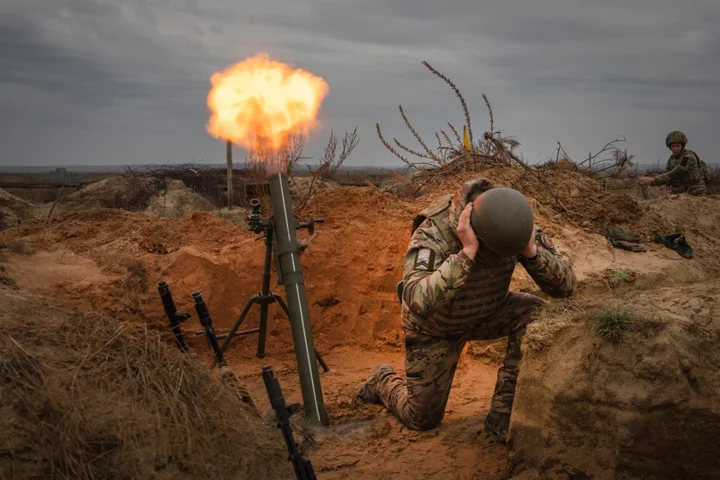
Ukraine-Russia war live: Kherson ‘symbol of heroism and hope’, says Zelensky on liberation anniversary
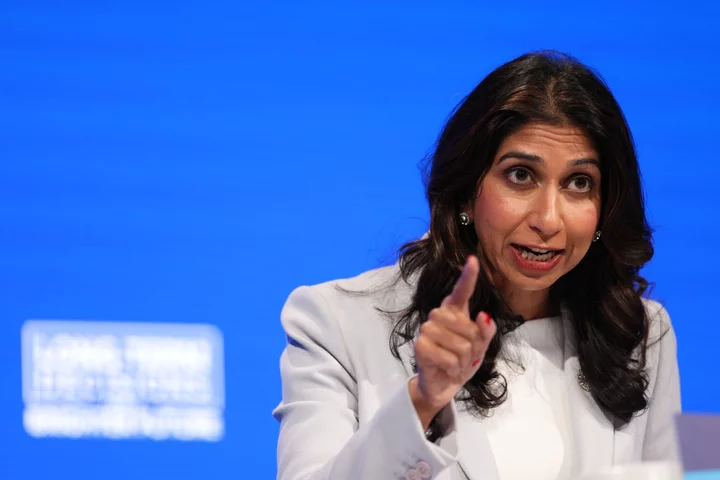
Fired Braverman Accuses UK’s Sunak of Betrayal, Broken Promises
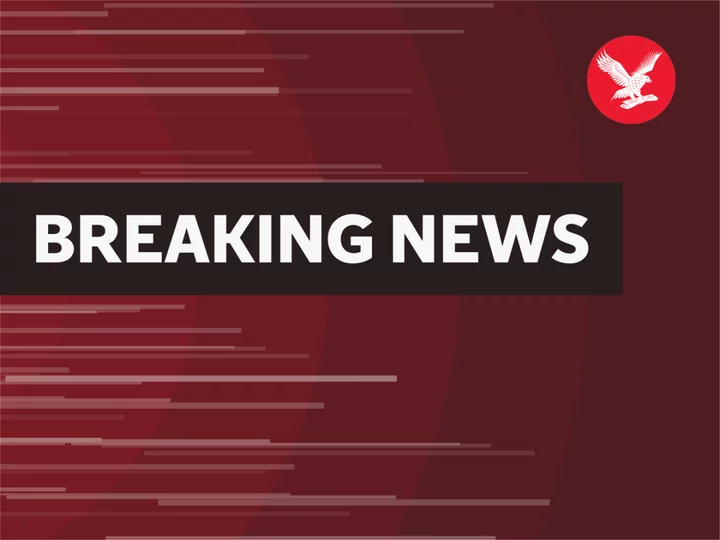
Wagner mercenary chief Yevgeny Prigozhin ‘dies in plane crash’
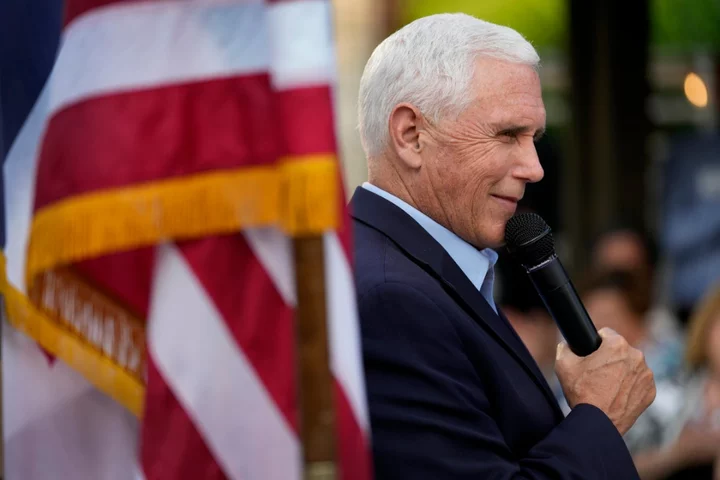
Pence 2024 news - live: Former vice president Mike Pence launches presidential campaign against Trump
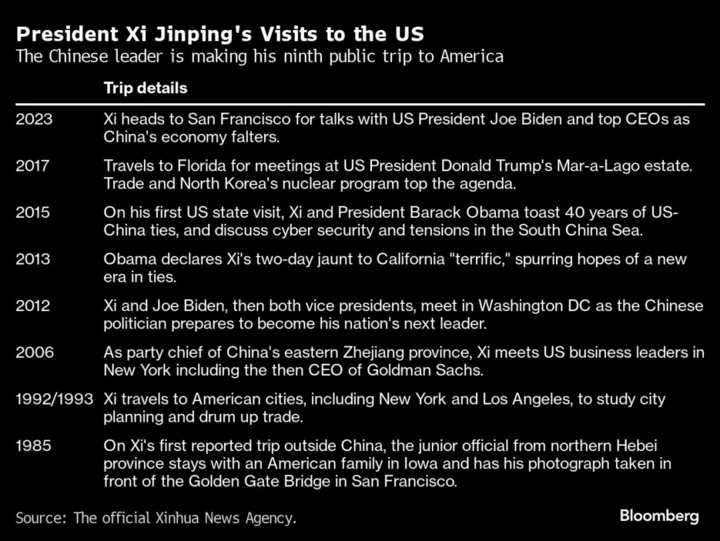
China’s Xi Begins First US Trip in Six Years
